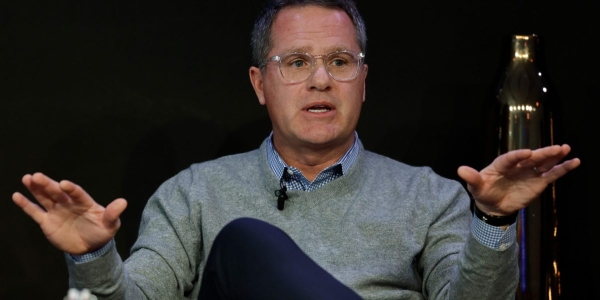
Since 1999, David Kang has pursued a peculiar hobby. That year, after Fortune released its annual Fortune 500 issue, Kang began to wonder about where chief executives of companies on the list had attended college. To keep track, the college professor did some research and manually entered their alma maters into a spreadsheet. After completing the task, Kang, then a professor at Dartmouth College’s Tuck School of Business, was shocked by what the data revealed.
“The results were stunning,” he told Fortune. “Like everyone else, I thought Ivy Leagues would dominate. But the largest place they had gone to was no college at all.”
Of the 500 CEOs on the list, seven or eight had no undergraduate degree, more than the combined degrees from any other college in the pool, according to Kang, who is now a professor of international relations and business at the University of Southern California. He presented the results to his Dartmouth graduate students, who tried to explain away the Ivy League’s lack of dominance, he said. But the numbers told all: A fancy degree isn’t required for business success, and top-tier corporate executives usually don’t have elite educations.
Kang continued to track Fortune 500 CEO education numbers over the following two decades, and said there was little change through the years from the initial findings. The consistent pattern for 20 years has been top leaders attending a diversity of colleges, he said.
“It’s an extraordinary testament to the vitality of this country, the incredible range of universities that these people went to,” Kang said. “It’s a country that has a massive economy, and many of these companies in the top 500 are not white-shoe law firms, they’re pharmaceutical, they’re manufacturing, et cetera.”
Here’s what the 2023 Fortune 500 reveals about CEO colleges.
Unexpected tallies
Of the 2023 Fortune 100 CEOs, only 11.8% attended an Ivy as undergrads, and only 9.8% hold an Ivy League MBA. Doug McMillon, CEO of Walmart, the top company on Fortune’s list, got his undergraduate degree from the University of Arkansas and his MBA from the University of Tulsa. Exxon CEO Darren Woods attended Texas A&M University and Northwestern University, and Microsoft CEO Satya Nadella went to India’s Manipal Institute of Technology and the University of Wisconsin–Milwaukee. Of the 20 CEOs at the nation’s biggest companies by revenue, only one attended an Ivy as an undergrad—Amazon’s Andy Jassy, an alum of Harvard University.
Moreover, 14 of the 20 CEOs went to public colleges. Apple’s Tim Cook graduated from Auburn University, Berkshire Hathaway’s Warren Buffett graduated from the University of Nebraska, and McKesson’s Brian S. Tyler graduated from the University of California at Santa Cruz.
Corporate success is primarily performance-based, so businesspeople don’t need fancy degrees to get ahead, said Brian Chabowski, chair of management, marketing, and international business at the University of Tulsa. Reaching the executive level is all about delivering, and sometimes about location, he added. Certain businesses recruit from specific regions or business schools, and those schools aren’t usually Ivy League.
“If you have the drive, and if the system is based on performance, it goes without saying that the elitism isn’t nearly what it could be elsewhere,” Chabowski told Fortune.
College elitism in business doesn’t exist to the extent that it does in academia, Chabowski noted. Individual talents have much more bearing on accomplishment than where someone got their degree, and traits that usually forecast success in students are attention to detail, perseverance, groundedness, and understanding of complexity, he added.
In terms of graduate degrees, 75% of the Fortune 500’s top 20 CEOs received an MBA or other graduate degree, however some returned to school later in life after already achieving some professional success. And the CEOs of five top 20 companies, including Costco CEO W. Craig Jelinek and Chevron CEO Mike Wirth, hold no graduate degree, proving that it’s not a requirement to reach the highest level in business.
Generally, if someone is “resilient and smart” and works very hard, it doesn’t matter if they go to Harvard or a state school, Kang said. If anything, he added, going to a school that affords them less privilege will force them to “learn more business and people skills” earlier.
